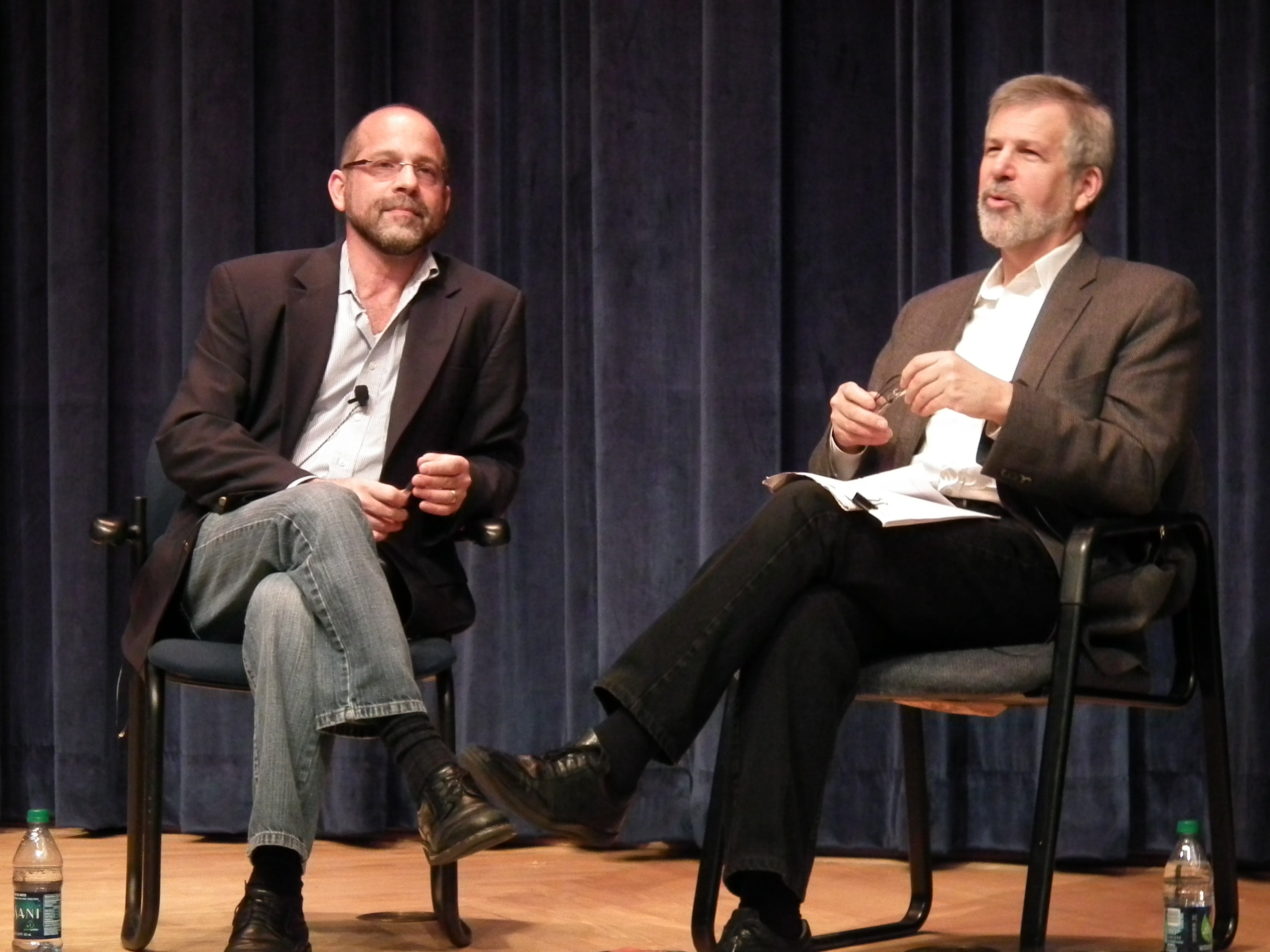KI Hosts Last Labor Lab of 2011-2012
Posted in Events | Tagged Michael Kazin, Stephen Lerner
On Monday, April 30, the Kalmanovitz Initiative sponsored the final event of its 2011-2012 “Labor Lab” series. Titled “99% Spring: Whose Streets? Labor, Civil Disobedience and Social Change,” the discussion featured Stephen Lerner, a leading organizer and one of the planners of the 99% Spring, and Michael Kazin, Georgetown professor of history and an expert in 20th Century social movements.
Lerner began the event by asking the audience several questions. Among them: Are wealth and power too concentrated in the United States? Is there too much money in politics? If there are regular people experiencing a crisis, why aren’t corporations also experiencing a crisis?
He called attention to one of the most unexpected developments of the last few years. Corporations that almost destroyed the world economy and had to be rescued because they were “too big to fail” are now even bigger and more powerful. Unless people challenge their unchecked power, these corporations would continue their destructive behavior. It is time, he suggested, that we make a crisis for corporations and for the top one-tenth of one-percent who exercise inordinate control over the system. Is it time to expose this elite to pressure from the people, for this top one-tenth of one-percent has decided that their wealth and power no longer require an economy in which most Americans experience a rising standard of living.
Lerner then went through a series of historical examples of social movements that sparked changes, from Moses leading the people out of Egypt to the Underground Railroad to the fight for marriage equality. The common thread he identified in those movements was that people were willing to take risks. This is a moment, he argued, that demands that we take risks once again.
The 99% Spring, he explained, was about training a new generation in the tactics of non-violent protest. The idea is to build on the momentum created by the Occupy movement in the fall 0f 2011. Occupy helped highlight the imbalance in wealth and power that led to the Great Recession. Now the goal is to teach people how to take actions that expose and target the corporate power centers, uniting disparate groups that have suffered under this emerging corporate order. Lerner pointed to the recent Wells Fargo shareholder meeting protests, which brought together immigrant workers (who were motivated because Wells Fargo invests in private prisons), students (concerned with the debts that owe to lenders like Wells Fargo), homeowners (many of whom are making payments on “underwater” mortgages held by the company), and environmentalists (concerned about the impact of Wells Fargo’s investments on the health of our planet). The Wells Fargo protests show how disparate groups can be unified by their common interest in confronting a powerful financial institution.
Lerner then highlighted Bank of America’s shareholder meeting in Charlotte, NC on May 9 as another opportunity for progressive groups to unite. Unfortunately, he noted that Charlotte has passed an extraordinary events ordinance, which increases the police’s authority to interrogate citizens. He predicted that during the next few months, in Charlotte and elsewhere, protestors would take to the streets in increasing numbers. These protests, he argued, could provide the seed for a new social contract.
Following his remarks, Lerner was interviewed by Professor Kazin. The colloquy raised a number of intriguing questions: How does a social movement know when protests and disruption are being productive? How can it tell when such disruptions have become counterproductive? Can organized labor join such protests without risking or undermining its increasingly tenuous institutions? How can labor and environmentalist groups make common cause when job creation initiatives and environmental protections can so easily come into conflict? How can the protest movement help push President Obama in a more progressive direction without undermining his chances for re-election?
Members of the audience then joined in with a host of other questions and comments. Don’t we have to look at this in an international frame? Does targeting the 1% amount to unproductive scapegoating? There were no easy answers, but Lerner’s talk helped clarify both the challenges and the opportunities ahead. In the end, the event raised exactly the kind of big questions that the Labor Lab series has sought to frame throughout the year.

